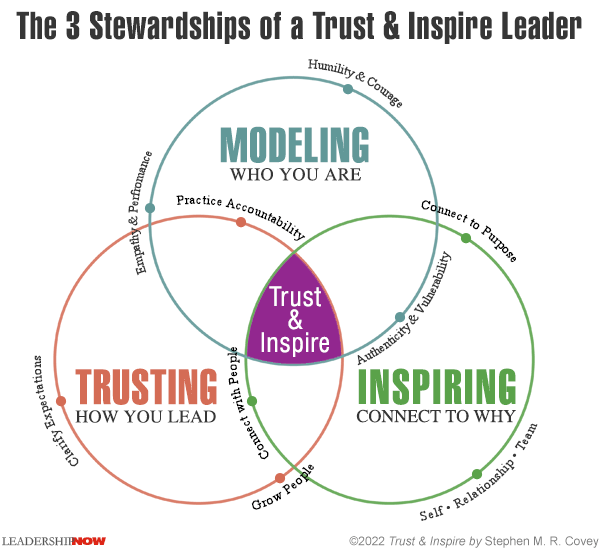Middle Managers: The Bridge Between Leadership And Employees

Table of Contents
Communication & Information Flow: The Lifeline of the Organization
Middle managers act as the crucial conduit for information, ensuring smooth communication between upper management and frontline employees. This two-way communication flow is essential for a healthy organizational climate and efficient operations. Effective middle managers understand the importance of translating complex strategies into actionable steps that their teams can understand and implement. Equally important is their role in conveying employee feedback, concerns, and suggestions upward, providing valuable insights for senior leadership.
- Translating complex strategies into actionable tasks: Breaking down high-level goals into manageable, achievable tasks for individual team members.
- Relaying employee feedback to senior management: Acting as a voice for their teams, ensuring that employee perspectives are heard and considered.
- Ensuring transparency and open communication channels: Fostering a culture of open dialogue and feedback within their teams and upwards to leadership.
- Using various communication methods effectively: Utilizing a mix of meetings, emails, instant messaging, and other tools to ensure information reaches the right people at the right time. This includes understanding different communication styles and adapting accordingly.
Team Management & Motivation: Fostering a Productive Workforce
Beyond communication, middle managers are responsible for leading and motivating their teams. They cultivate a positive and productive work environment by fostering strong team cohesion and boosting morale. This involves various strategies, including effective delegation, performance management, conflict resolution, and recognition of employee contributions.
- Delegation and task assignment: Assigning tasks based on individual skills and strengths, ensuring optimal workload distribution.
- Performance management and feedback: Providing regular feedback, both positive and constructive, to help team members improve their performance.
- Conflict resolution and team building activities: Addressing conflicts promptly and fairly, and organizing team-building activities to enhance collaboration.
- Recognizing and rewarding employee contributions: Acknowledging and rewarding individual and team achievements to boost morale and motivation.
- Mentoring and developing team members: Providing guidance and support to help team members grow professionally and develop their skills.
Performance Management & Accountability: Driving Results
Middle managers play a critical role in ensuring that organizational strategies are efficiently executed and that goals are achieved. This involves setting clear performance expectations, tracking progress, identifying roadblocks, providing feedback, and holding team members accountable for results. Key performance indicators (KPIs) and other relevant metrics are essential tools in this process.
- Setting clear performance expectations: Establishing specific, measurable, achievable, relevant, and time-bound (SMART) goals for each team member.
- Tracking progress and identifying roadblocks: Monitoring progress towards goals and identifying any obstacles that may impede success.
- Providing constructive feedback and coaching: Offering regular feedback to help team members improve their performance and reach their full potential.
- Holding team members accountable for results: Ensuring that team members take ownership of their work and are responsible for achieving their goals.
- Using KPIs and other metrics to measure success: Utilizing data to track performance, identify areas for improvement, and demonstrate success.
Problem-Solving & Decision-Making: Navigating Challenges
Middle managers are often the first line of defense in addressing workplace issues. Their ability to identify, analyze, and resolve problems quickly and effectively is critical for maintaining operational efficiency. This requires sound judgment, decisive decision-making, and the ability to escalate critical issues to senior management when necessary.
- Identifying potential problems and risks: Proactively identifying potential issues and risks that could impact team performance or organizational goals.
- Developing solutions and implementing strategies: Creating and implementing solutions to address identified problems and risks.
- Escalating critical issues to senior management: Knowing when to seek guidance and support from senior management on complex or critical issues.
- Making timely and informed decisions: Making decisions in a timely manner based on available information and sound judgment.
- Using data-driven approaches to problem-solving: Using data and analytics to inform decision-making and problem-solving.
Developing Future Leaders: Investing in Talent
Middle managers play a significant role in identifying and nurturing future leaders within the organization. They act as mentors, coaches, and sponsors, providing opportunities for professional development and growth. This investment in talent is crucial for organizational sustainability and long-term success.
- Identifying high-potential employees: Recognizing employees with leadership potential and providing them with opportunities to develop their skills.
- Providing mentorship and coaching opportunities: Providing guidance and support to help high-potential employees develop their leadership skills.
- Creating development plans for team members: Developing personalized development plans to help team members achieve their career goals.
- Facilitating training and professional development: Providing access to training and development programs to enhance team members’ skills and knowledge.
- Promoting a culture of learning and growth: Creating a work environment that encourages continuous learning and professional development.
Conclusion: The Indispensable Role of Middle Managers
Middle managers are the indispensable link between leadership and employees, responsible for communication, team management, performance oversight, problem-solving, and talent development. They are the engine room of organizational execution, translating vision into reality. Investing in your middle managers is investing in the success of your entire organization. Learn more about effectively managing and empowering your middle managers today!

Featured Posts
-
 Did Astronauts Enjoy A Nine Month Space Holiday Cbs News Investigation
May 12, 2025
Did Astronauts Enjoy A Nine Month Space Holiday Cbs News Investigation
May 12, 2025 -
 Lowrys Heartfelt Support For Mc Ilroys Triumphs
May 12, 2025
Lowrys Heartfelt Support For Mc Ilroys Triumphs
May 12, 2025 -
 Secure Your Spot Tales From The Track Ticket Giveaway
May 12, 2025
Secure Your Spot Tales From The Track Ticket Giveaway
May 12, 2025 -
 La Vie De Chantal Ladesou En Dehors De Paris Famille Et Retraite
May 12, 2025
La Vie De Chantal Ladesou En Dehors De Paris Famille Et Retraite
May 12, 2025 -
 Amazons Jeff Bezos Weighs In The Peoples Choice For Next James Bond
May 12, 2025
Amazons Jeff Bezos Weighs In The Peoples Choice For Next James Bond
May 12, 2025
Latest Posts
-
 Duke Defeats Oregon Ducks In Ncaa Womens Basketball Tournament
May 13, 2025
Duke Defeats Oregon Ducks In Ncaa Womens Basketball Tournament
May 13, 2025 -
 New Kelly Ripa And Mark Consuelos Studio Unveiled How Fans Are Reacting
May 13, 2025
New Kelly Ripa And Mark Consuelos Studio Unveiled How Fans Are Reacting
May 13, 2025 -
 Oregon Fights Back Dramatic Ncaa Tournament Win Against Vanderbilt
May 13, 2025
Oregon Fights Back Dramatic Ncaa Tournament Win Against Vanderbilt
May 13, 2025 -
 Kelly Ripa And Mark Consuelos Reveal Temporary Studio A Look At The Fan Response
May 13, 2025
Kelly Ripa And Mark Consuelos Reveal Temporary Studio A Look At The Fan Response
May 13, 2025 -
 Oregon Ducks Fall Short Against Duke In Ncaa Tournament
May 13, 2025
Oregon Ducks Fall Short Against Duke In Ncaa Tournament
May 13, 2025
